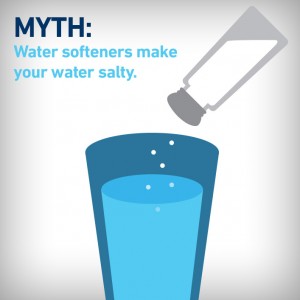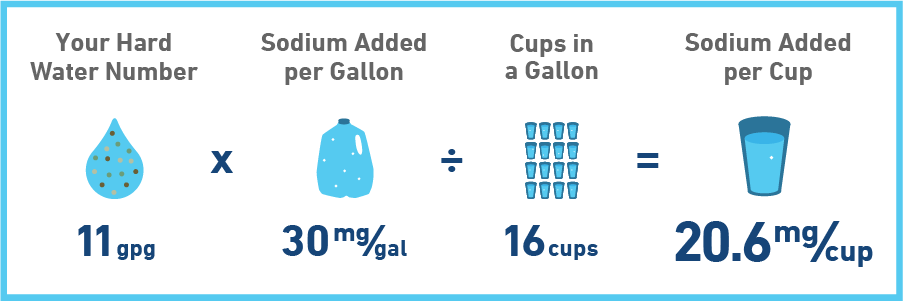Sodium is a naturally occurring mineral and is found in almost everything you consume—from apples and almonds to water and milk. And while sodium is used to soften water, one of the biggest misconceptions is that it makes your softened water taste salty. Luckily, that’s not the case. This article dispels that common myth and provides a practical solution to help reduce the amount of sodium that does exist and ensure you are drinking the healthiest water possible.
How much sodium do you need?
According to the Dietary Guidelines for Americans, the recommended limit for sodium is less than 2,300 mg a day. The average American consumes about 3,400 mg a day, but the vast majority of sodium comes from table salt and processed and prepared foods, like cold cuts, canned soups, fast food, and frozen dinners. Here are the sodium levels of some common food items:
- An 8-ounce glass of low-fat milk contains about 120 mg of sodium
- One egg contains 59 mg of sodium
- An 8-ounce glass of orange juice contains about 25 mg
- A can of soda contains 40-45 mg
- Depending on the brand, a standard 1-ounce slice of bread has between 80 and 230 mg of sodium
- A teaspoon of regular table salt contains 2,300 mg of sodium
Sodium in softened water
The amount of sodium present in drinking water—even after softening—does not represent a significant percentage in a person’s daily intake. During the regeneration process, the resin beads that remove the calcium and magnesium (the hardness ions) in your water are flushed with a brine solution (made from the salt you add to your tank). This releases the calcium and magnesium ions from the beads and replaces them with sodium ions. The excess brine and hardness ion solution is then flushed from the system. This process adds just a little sodium to the overall water supply—and you definitely won’t taste it.
The exact amount of sodium present in soft water will vary based on how much hardness is being removed by the softener. The harder your water is, the more sodium ions that are being exchanged to make soft water. For example, someone with 11 grains per gallon (gpg) hardness would see an additional 20.6 mg of sodium per 8-ounce glass.
Once you have your hard water number, this is how you can calculate the additional amount of sodium that will be added to your water:
How to reduce sodium consumption
You may choose not to drink soft water because of the sodium in it for health reasons or otherwise and seek out the most simple solution available. For example, will a Brita water filter remove sodium from soft water? Standalone Brita filters, like pitcher or faucet filters, are an excellent way to reduce the most common water contaminants and impurities, but unfortunately, sodium is not on that list. There is an additional measure you can take to ensure your drinking water is sodium-free while still enjoying the benefits of soft water, such as reduced stains and limescale, more efficient soap usage and longer appliance life.
Install a reverse osmosis filtration system
Does reverse osmosis remove sodium from softened water?
Yes.
In fact, the most thorough way to remove sodium from soft water—along with a host of other contaminants such as chlorine and lead—is to install a reverse osmosis drinking water system to work alongside your water softener. These systems, like the Brita Total360 Reverse Osmosis (RO) System, use a thorough, 3-stage reverse osmosis filtration process that includes a pre-filter, a post-filter and a semipermeable membrane. This membrane is where the magic happens, as it is specifically designed to remove concentrated substances—like salt—and leaves only clean, healthy drinking water for you to enjoy. In short, reverse osmosis systems remove 95%+ of all common contaminants in water, including sodium.
A win-win solution
When you do the math, water softeners add a very small amount of sodium to your diet. And if you add a reverse osmosis system to remove salt, you will have the most thorough, healthy water treatment solution for your home. You’ll get to enjoy the many benefits of soft water such as preventing damaging scale buildup in your pipes and appliances, using less energy, lotions and soaps, which will save money throughout your home. And perhaps more importantly, you will enjoy the safety and security of having clean, healthy, sodium-free drinking water for you and your family.
Ready to learn more? Explore the Brita Total360 Reverse Osmosis (RO) System on EcoPureHome.
Unsure of your home’s water quality? Contact a local EcoWater expert to get a free water analysis.












